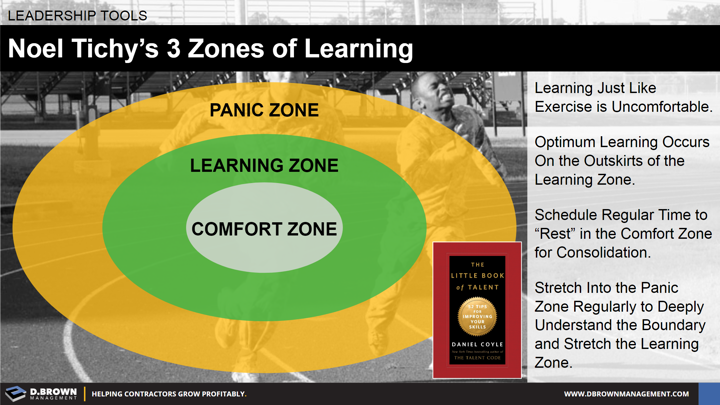This is no different than physical activity where with consistent practice we will all improve. When it comes to developing talent in yourself and in others, it is important to know the boundaries of the learning zone as defined by Noel Tichy in his 3 Zones of Learning model.
The learning zone will vary for each person, depending on the subject matter. This is the same for physical activities. Someone may have great cardio capacity and be able to train for hours at a time. That same person could get fatigued very quickly with a power-lifting routine.
It is important to move into the “Panic Zone” regularly as a way to stretch the “Learning Zone.” This is the physical equivalent of training to failure with weights or HIIT (High-Intensity Interval Training).
It is critical to schedule appropriate times for “rest” in the “Comfort Zone,” because that is where physical and mental growth really takes place.
Just like physical training, things like sleep, nutrition, and consistency play a huge factor. Few people are disciplined with their health and physical conditioning. Even fewer are disciplined with the mental equivalent because it is much harder to see or measure.
The Little Book of Talent provides 52 excellent tips for improving.

